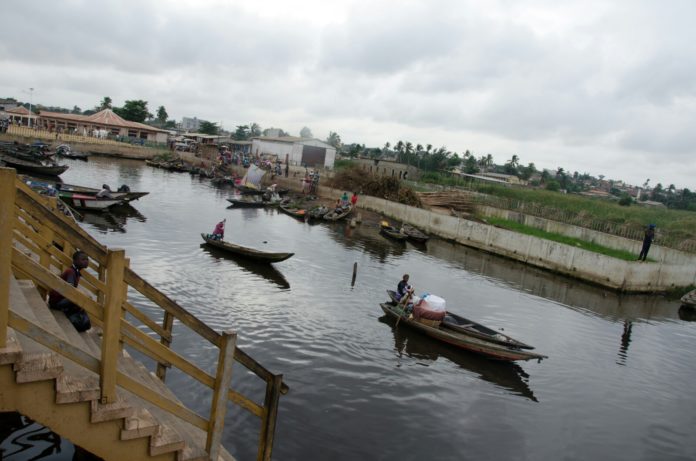Photo credit: DiasporaEngager (www.DiasporaEngager.com).
The International Potato Center (CIP) participated in the 6th Kenya Institute for Public Policy Research and Analysis (KIPPRA) Annual Regional Conference held at Pwani University, Kilifi County from 21st to 23rd June. The conference brought together policy experts, stakeholders, youth, academia, policymakers, researchers, and development partners to discuss policy reforms, sustainable agriculture, infrastructure development, natural resource management, and digital innovation for unlocking the potential of Arid and Semi-Arid Lands (ASALs).
Under the theme “Accelerate Economic Growth and Development for ASALs in Kenya,” the experts focused on strategies to foster economic growth and development in Kenya’s ASALs. CIP, as one of the CGIAR centers contributing to the National Policy Strategy (NPS) initiative, emphasized the critical role of innovative research on potato and sweetpotato in transforming Kenya’s agrifood systems. They highlighted the need for policies promoting improved productivity through diversification of cropping systems, market linkages, trade opportunities, and job creation for women and youth in ASALs.
Joyce Maru, CIP Global Director (a.i) Sweetpotato Programme, acknowledged the unique challenges faced by ASALs and the potential of agriculture to drive economic development. CIP actively works with partners at national and county level and contributes to policy interventions promoting sustainable agricultural practices, resilience, and economic growth in these regions. Maru emphasized CIP’s role in the CGIAR NPS initiative, involving policy research, stakeholder engagement, crisis response, capacity strengthening, youth involvement, knowledge sharing, and partnership development. CIP aims to formulate and implement sustainable agricultural policies that enhance resilience, market access, value chains, and inclusive economic growth in the ASAL region. The conference also highlighted CIP’s significant research contributions in addressing climate change challenges in ASALs through sweetpotato agri-food systems.
Youth Involvement in Policy Making Process
In collaboration with KIPPRA, CIP and ILRI co-organized a pre-conference event on 20th June 2023. Over 50 youth from various categories, including university students, community development mobilizers, innovators, government and non-government organization representatives, and civil society leaders, received training on public policy making processes and critical issues driving growth and transformation in ASALs. The training focused on evidence-informed policy formulation, policy research, digital revolution, and stakeholder participation. Expert facilitators included Victor Mose from KIPPRA, Michael Victor from ILRI, Leonard Kirui from CIP and Martha Awinoh from CIP.
The population projection for 2023 estimates Kenya population at 51,525,602 million. ASAL counties account for 54.61% of the total population with arid counties accounting for 11.73%. According to the 2009 population census, the youth-adult population ratio increased from 62.7 per cent of the adult population in 1979 to 66.7 per cent in 2009. The high proportion of the youth to adult population signifies that Kenya is facing a youth bulge. In the political sphere, the youth constituted 51 per cent of registered voters in 2017 elections as compared with 46 per cent in 2013. This is a positive development that signals declining apathy and rising interest and participation of the youth in decision making. Furthermore, youth participation in policy development strengthens their role in addressing socioeconomic challenges in ASALs through creativity, innovation, and solutions. The discussions from the youth event captured in the
The 6th KIPPRA Annual Regional Conference youth side event provided an invaluable platform for young voices to be heard, leading to constructive discussions and the formulation of key recommendations captured in the 6th KIPPRA Annual Regional Conference youth side event communique. Participants and industry experts highlighted and recommended the crucial need for creating additional innovative platforms that allow young people to showcase their talents, advocate for youth-related issues, and actively contribute to public policy making.
CIP High-level Panel Engagement
The culminating event of the conference was the high-level panel discussion on irrigated agricultural approaches to secure food and nutrition security chaired by Joyce Maru- CIP/CGIAR. The panel featured diverse experts including CIP scientists, senior director in charge of regional development (ASAL), nutritionists and senior colleague from NYS who shared their insights, experiences, and recommendations in adopting integrated approaches for agricultural development in the ASALs. The high-level discussion focused on discussing the importance of diversification and integration of climate resilient crops, particularly Orange-Fleshed Sweet Potatoes (OFSP), in ensuring food and nutrition security. Dr. Chalmers Mulwa from CIP noted that inclusion of sweetpotato in cropping systems in the ASALs is crucial to cope with the inherent challenges of climatic shocks and land degradation in these regions.
The experts emphasized the significance of farmer-led initiatives and the adoption of local irrigation systems, alongside larger investments in water systems through Public-Private Partnerships (PPPs). During the discussions, the role of youth in driving change was highlighted. It was emphasized that engaging young people in various aspects such as value chain development, markets, and the use of technology is crucial for bringing about positive transformations in agriculture and related sectors. By involving youth, the conference aimed to harness their potential and encourage their active participation in addressing the challenges posed by climate change and promoting sustainable agricultural practices. Key recommendations from the discussion included the growing need for embracing technology to solve societal problems, Scientists to be provided with more opportunities to scale up their innovations and solutions to solve socio-economic issues and the urgent need for strengthened partnerships between governments and nongovernmental organizations to boost productivity in ASALs.
Source of original article: International Potato Center (cipotato.org).
The content of this article does not necessarily reflect the views or opinion of Global Diaspora News (www.GlobalDiasporaNews.com).
To submit your press release: (https://www.GlobalDiasporaNews.com/pr).
To advertise on Global Diaspora News: (www.GlobalDiasporaNews.com/ads).
Sign up to Global Diaspora News newsletter: (https://www.GlobalDiasporaNews.com/newsletter/) to start receiving updates and opportunities directly in your email inbox for free.

































